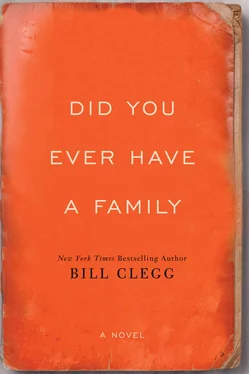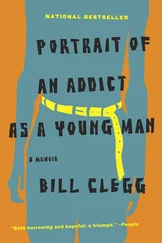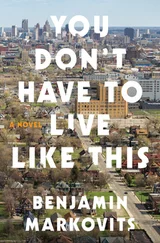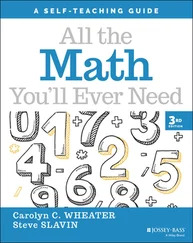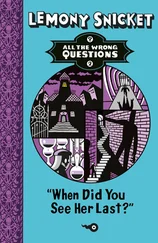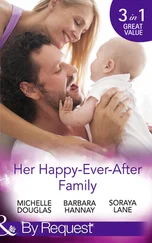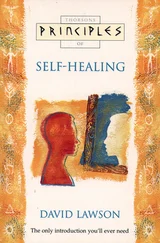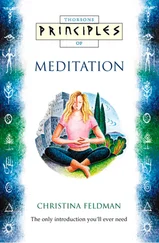We stayed that night in Room 6, where Jane is now, but long before the good mattress. And then, after a few weeks of convincing Kelly, we sold our house, quit our jobs, and cashed in our 401(k)’s early. During that time we came back to Moclips twice and haggled with the Hillworths, who’d been trying to unload the place for years but had a hard time letting go. Eventually, we bought the Moonstone and the Hillworths’ house next door and all the scratched and broken-down furniture in both. Kelly and I had worked in hotels our entire adult lives, and now we owned one that needed us as much as we needed it. Kelly’s brothers thought we were crazy, but they knew once we’d made up our minds there was no turning back.
That was over four years ago and I still think about Penny every day. I talk to her when I walk the beach and I ask her what she would do about this or that. I’ve asked her about Jane and if I should worry, and in the roar of the ocean I hear her say keep watch but let her be. Each time I head back up the beach and come upon the Moonstone, I remember the first time I saw it and Kelly’s face smiling at me in the crazy wind. And later that night, the two of us crawling into bed in that room that sits so close to the sea. After we turned out the lights, I tucked under the blankets and thanked God. For Kelly, for this life. And for Penny, who helped me survive growing up in Worcester, getting through college, and convincing me to move to New York. And into the dark I thanked Penny directly, for being my best friend, for agreeing to go to rehab in Seattle, for getting sober, and for staying out there long enough for me to check in that night at the Holiday Inn. I shivered as I imagined all the possible outcomes if any one thing had happened differently along the way. If my parents had moved us to some other neighborhood in Worcester when I was a kid. If Penny had never met Chloe and never tried heroin. If I’d picked the Econo Lodge or the Days Inn that night in Seattle. If I’d left New York one day before, or after. If Kelly’s employee hadn’t called in sick. If Penny’s girlfriend had slept at her house instead of the dorms the night those kids turned up. If Penny had locked her windows. I curled into Kelly and burrowed as deeply as I could into her back. I remember the tissue-thin, pale yellow T-shirt she wore, pressing my face to it and feeling her warm skin on the other side. And I remember thinking this is what it feels like to be home. Here. In the space around and between us. This fabric, this skin, this smell, this woman.
For most of that night I was awake, wondering at it all, the pattern that seemed to emerge when I laid out every fluke and chance encounter, puzzling through all the possible signs and meanings; but any trace of a design disintegrated when I remembered the chaos and brutality of the world, the genocide and the natural disasters, all the agony. I never felt so small, so humbled, by the vastness of the universe and the fragility of life. I studied the water-stained ceiling in the room and imagined the things it had seen, the people. Who else had huddled here, pressed into someone they loved as if they were the last thing on earth that mattered? Who else prayed that morning would never come? Prayed they’d never have to leave this bed and let go.
That night, the moon glowed through the curtains of the locked window, its storybook light dancing a path to the horizon, to the other side of the world. Two car doors slammed in the parking lot — one, then a moment later, the other. I listened for footfalls or keys turning in locks but heard nothing but the crashing surf outside. From the bed, I could see stars. At first, only the big ones: bright and fat and alone, jumping with urgency; and then the rest: tiny and fierce, a billion grains of sand spilling across the night sky, shining like the coast of heaven. Kelly’s sleeping body rose and fell with each breath. I curled closer, held tighter. I pressed my nose to her back and through the thin cotton smelled the motel soap on her skin. Waves collapsed and exploded on the beach, one after the other, again and again. I was home.
My son Robert got married this year. He and his wife, Joy, called me from their honeymoon in Big Sur, California, to let me know they’d gone to city hall in Oakland to say their vows. Do I wish I’d been there? Of course I do. But it’s how they wanted to go about things and it’s their business. I was glad for the phone call. Joy is a strong woman and I think the two of them make sense together. They’re not exactly what you’d call an affectionate couple or terribly expressive, or at least not from what I’ve seen in the few times I’ve seen them together. But given what Robert’s been through, just making sense is more than adequate. They’re both journalists, both busy, both black, both sober, and neither wants children. Robert writes about human rights abuses in government prisons, and Joy is obsessed with the impact of oil pipelines on indigenous lands. She spends a lot of time in Canada. When they talk about what they’re working on, they both tend to shout, so when we speak on the phone or see each other, neither of which is often, I try to steer the conversation to safe subjects like the weather and pets. I love Robert and I know he loves me, but since his mother died over a decade ago, he’s stayed away from Atlanta, his sisters, and me. For instance, his sisters haven’t met Joy yet and they’ve been together for over four years. They don’t make a fuss about it. Robert for them has always been less a brother and more like a cousin or young uncle who visits occasionally. Boarding school in Connecticut, five months in hospitals, two years of rehab and aftercare in Minnesota, and eventually college in Portland kept him away, sometimes even during Christmas. They knew a lot about him — he was so much and so often the subject of dinner-table talk in our house — but I don’t think they ever had a chance to know him.
Robert was a fussy toddler. Easily upset, quick to cry. After kindergarten he calmed down and became quiet. Smart as hell and skipped the fourth grade, but he never appeared comfortable in his own skin. Didn’t make friends easily. He had one friend from the neighborhood, Tim, a chubby, redheaded boy whom he played Dungeons & Dragons with and wrote adventure stories for, which Tim would illustrate with complicated pictures of four-armed, sword-wielding soldiers and magic fairies with no eyes. Robert never liked to share with us the little books they made. Kay and I would sneak peeks from time to time when Robert was in the bath just to check what was going on. Mostly the stories and pictures were pure fantasy. Occasionally you’d see something upsetting that suggested what our old family therapist would call displaced anger. I’m thinking now of the twin monkeys who got their heads snapped off by a flying griffin with an enormous beak. If the visual symbolism wasn’t obvious enough, Robert’s story described the death of the twin monkeys as necessary for the survival of the human race. That they would eat all Time, and without killing them the world would run out of hours. Impressive on the one hand for a ten-year-old, but especially disturbing since his room was across the hall from his twin sisters, who from their premature birth required lots of developmental and physical therapy and who ate up a lot of, well, time. Still, as rattled as I remember us being by that particular story, I don’t remember talking to Robert about it, at the time, anyway; or discussing with him any of the books he and Tim made. I’m sure we should have, just as I’m sure we should have done many other things differently. But I think we were grateful he had a friend in Tim, creepy and aloof as he might be. Together, they had a sneaky air about them, and they’d spend hours in each other’s room scribbling away and talking in a kind of code that Kay and I could never crack. Maybe all that sneakiness and escapism should have been a sign of what would happen later with Robert, but as a parent you just have no idea what anything means. On some level everything your kids do and say is in code. I’m sure some parents are expert at translating, but with Robert we didn’t know where to begin. Also, we had a lot of other things to focus on at that time. The girls needed attention, and when they were three, Kay was diagnosed with stage-three breast cancer. Robert was ten then and often left alone to fend for himself. Between the girls and chemo appointments and trying to keep afloat the real estate development business my brother and I owned, there wasn’t a lot of time to play basketball or go over homework assignments. The funny thing is that Robert was the one person, the one area of our lives, we didn’t worry about. He was so tidy and bright, so self-contained and quiet, that I assumed he didn’t need me as much as everyone else did. Sure he had a spooky side, but he never got in any trouble. I was putting out a lot of fires then, and because with him there was no smoke, no flame, no alarms, I wasn’t paying attention. Nothing that wasn’t on fire got much of my time, which was something he must have understood from an early age. For the most part, I took him for granted. That he would shower and brush his teeth in the morning, get dressed and pour his own bowl of cereal. You’d think I would have been grateful to have a self-sufficient kid. I think for the most part I was. But a few times he drove me crazy. I remember one morning loading the girls into their car seats while Kay sat in the front sobbing from a migraine brought on by the chemo. The girls were fidgeting and whining and making it impossible to buckle their seat belts. We were late for school, for Kay’s doctor’s appointment, and at the time my brother was threatening to sell his half of the business if I didn’t get in the game , as he put it. At the edge of all this sat Robert, cross-legged on the front step of the house, scribbling in his black-and-white composition book, writing one of those wild stories with fire-breathing turtles and dusty witches, completely oblivious to what was going on. I remember looking at him and feeling furious that he was exempt from responsibility, untouched by struggle. This is, of course, what you are supposed to want for your children, but in that moment it seemed unfair. What I wanted was to hit him, shake him violently, rattle his calm, and inflict some of what I was experiencing. It sounds insane, but a part of me felt that if I went near him in that moment, I might kill him. That’s how angry I was. I couldn’t stand it that nothing seemed to register with him, and I could not have been more wrong.
Читать дальше
